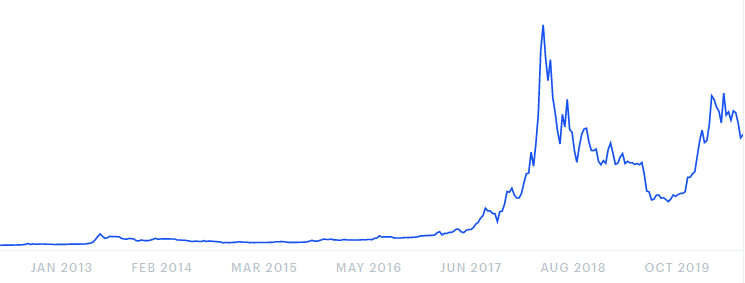
With so many emerging markets, we’re seeing a substantial evolution in everything from technology (that computer-altered scene from the Shining, where they seamlessly replaced Jack Nicholson with Jim Carrey, blew everyone’s minds when it first came out online) to developing sustainable methods of producing meat (if you live in Canada, many fast food restaurant chains from A&W to Tim Hortons now offers motherless meat substitutes, like Beyond Meat®, in their sandwiches as an alternative).
And then, there are controversial discussions around the legalization, wholesale distribution and non-medical retail presence of cannabis and its related consumer goods, like CBD, within the Food and Beverage industry. Taking the time to look at some of these “hot-trend” initiatives across North America’s business world can be crucial to understanding their current (or future) economic impact. Our team at GURUS have put together a list of 10 big market trends that are hot topics for business leaders and investors. Let’s get started…
1. Is legal cannabis the next big thing? Let’s talk about rapid growth

According to a recent study of the data, “The cannabis market was valued at USD 14.5 billion in 2018, and it is projected to reach 89.1 billion by 2024, with a CAGR of 37% during the forecast period”. Those aren’t small numbers by any means. With the alleged medicinal properties of cannabis, the increasing legalization of cannabis (non-medical sales and use recently became legal all across Canada in 2018), and the potential of tapping into a recreational market that includes titans like liquor and tobacco, it doesn’t come as a shock.
But how does a long-standing taboo product like marijuana get past the red tape and successfully earn its place in retail like any other consumer good? That was the question on everyone’s minds a few years ago. However, it seems that, as the article states, some of the reasons behind it can be identified as “increasing advances in genetic development and intellectual property of cannabis”.
Whether you agree with its legalization or not, it’s hard to deny that it’s become one of the most talked-about topics on the market, with companies like Canopy Growth, Aphria and countless others making news headlines on the weekly. The latest reports show that cannabis might quickly become a big player in the world of wholesale distribution.
Nonetheless, it’s still too early to say for certain and the pot market has yet to overcome a number of restraining factors that include strict government and financial regulations, a persisting taboo status and finding a sustainable agricultural system to mass-produce. In any case, it’s definitely worth watching how it evolves.
2. CBD (Cannabidiol) and CBD-infused food and beverages

Perhaps even larger of an emerging market than legal marijuana itself, is the cannabis-derivative concentrate, Cannabidiol (generally referred to by the market as CBD). The oil is one of 85 cannabinoids that are known to exist in the cannabis plant, and comes in second after THC (tetrahydrocannabinol). Allegedly used to treat physical pain and reduce anxiety, CBD has become a widespread phenomenon across North America. Consumer goods items like CBD Gummies, tinctures and dog treats are a rapidly growing market that more and more businesses are joining. Even apparel retailer, Abercrombie & Fitch, is reportedly looking to sell cannabidiol in their stores, through CBD-infused body lotions scrubs and lip balm products.
As a growing number of brands and sponsors become associated with the cannabis-derivative components of CBD, we might see massive growth in this industry. However, that doesn’t mean it won’t have its fair share of challenges. While states like Louisiana are showing signs of enthusiasm towards this emerging market, that doesn’t mean that there haven’t been both legal and medical roadblocks. In an article from the New York Times, published earlier this year, they mention that different states in the U.S. have their own sets of rules and regulations, to the point where it’s becoming a growing issue on the federal level. For example, they mention small variances like how in Colorado, all parts of the hemp plant are legal to add to food for sale in consumer goods. Yet, as of May 2019, other states such as California, Georgia, and New York maintained a ban on CBD in any food items.
Needless to say, similarly to the situation with cannabis, this is a new and still somewhat taboo market that is just freshly emerging. As such, it might be a while before we see CBD-infused goods become as regularly purchasable as its cousins in the liquor and tobacco industries.
3. Motherless Meats (plant-based meat alternatives)

Motherless (lab-grown) meats are on the rise in a very big way. Companies like Beyond Meat and Impossible Foods have created new plant-based products that taste, feel and bleed like real meat. With healthy and sustainable eating becoming a growing trend in North America, the plant-based food industry is becoming more and more prominent in restaurants and grocery stores across Canada and the U.S. In case you needed more evidence of the popularity of these new faux meat substitute foods, Beyond Meat’s stocks shot up by a whopping 840% since they went public with their IPO launch in May of 2019. Since then, the industry leaders who started what is now a massive food trend have announced that they plan on going up against America’s $270 billion dollar meat industry in a recent investor presentation.
Yet, while restaurants like KFC, seem to be jumping on board the Beyond Meat hype train by offering their products in their chain, this latest market boom is creating a very competitive industry that has left some investors skeptical about the future of fake meat. Competing businesses, like America’s largest meat producer, Tyson (TSN), JBS (the world’s largest meat producer), Nestle, Kellog and countless others are looking to launch their own version of the increasingly popular meat alternative. It remains to be seen if Beyond Meat can retain their spot on the “meat alternative” throne, but one thing is for certain - their innovative thinking and leadership in the sustainable foods industry has created a massive demand.
4. AI (Artificial Intelligence)

The two most common words you will hear coming out of the mouths of investors, silicon valley entrepreneurs and puzzled long-time corporate leaders in 2019: Artificial Intelligence.
It wasn’t long ago that cloud technology was a nebulous afterthought for most people, with the general belief being that it was some magical wonderland where your iPad could store your thousands of family photos. In 2015, GURUS CEO, Martin McNicoll actually wrote a book titled “Scale Up Your Business with Cloud Technology: A Practical Guide to Building a Future-Proof Enterprise”. In his book, one of the main points that he made was how most business owners were tech-resistant and painfully ignoring a slow-pulsing wave of revolution that was the cloud. How could you run your business without a website? Without a way to pay online or an EMV system for processing card payments? At a time when spreadsheets like Excel were considered the norm, the biggest arguments around the cloud were “I don’t understand this - where is this information being stored? What about my data security?” As the great poet, Bob Dylan, once said, “the times they are a changing'”. Technology is moving at such a past face now that we’re long beyond arguing about the merits of the cloud. The truth is that beyond 2019, every business is a cloud business. If you don’t exist online, if you don’t have any digital presence or accept forms of payment other than cash, then you’re the exception and not the norm.
Then, it was only a matter of time before the next phase of the technological evolution struck - and here we return to those two common words you’ll hear in tabloids, social media, out of the mouths of investors and politicians in 2019: Artificial Intelligence. Everyone’s talking about it - but what does it mean for big business? Venture Capital investments in AI innovation grew from under $2 billion to over $9 billion between 2013 and 2018 with an equally whopping number of start-up acquisitions in the industry
From allowing amateurs to alter iconic scenes from films to manufacturing false videos altogether, there is definitely a debate to be made here on how AI should be used in upcoming years. The recent “deepfake” craze (deepfakes are videos manipulated using artificial intelligence to overlay images on top of existing videos to alter them and make viewers think they are real) is already causing political turmoil in places like California. In early 2019, a video of US House speaker, Nancy Pelosi, was altered using deepfake technology to create the impression she was drunk and slurring her speech. Since then, the State is making efforts to impose laws around the usage of the new tech, which begs questions on whether or not it can be controlled. In the meantime, many online businesses are adapting intelligent chatbots that leverage AI to have realistic conversations with website visitors - but even then, this is all in the early stages and there are a lot of questions that are being asked. Take a look at our blog on SuiteWorld 2019’s opening keynote to find out what Evan Goldberg (executive vice-president of Oracle NetSuite) and Oracle’s Mark Hurd, CEO of Oracle, had to say about the future of AI in enterprise resource planning (ERP).
5. Cryptocurrency

Stop me if you’ve heard this one before - cryptocurrency, such as Bitcoin, is going to replace banks and cash. Yes, it’s the catchphrase of our beloved millennial generation. It could also be a reality in 10 years. Before I get into any data or sound a little too preachy (I’m sure you’re used to that on this particular topic), let me tell you a quick story. Very recently, I was in Las Vegas, at the Heart Attack Grill. If you’re not familiar with the (in)famous fast-food joint, they take pride in offering the unhealthiest selection of your favourite comfort foods, from burgers to milkshakes and beyond. When I went, I took on the 8000 calories quadruple bypass burger challenge - if you finish the whole thing, they roll you out in a wheelchair (if not, you get spanked with a wooden paddle by one of their nurses). Why would I do that to myself? Let’s put aside my terrible diet habits - one of the interesting things about the restaurant was that it was a cash-only joint. Upon entrance, they tell you, “It’s in case you die and can’t pay by card after your meal”, which is a fun gimmick. In order to pull out cash (because who carries cash anymore in an Apple Pay world?), they had a typical cash ATM by the door. Beside it, they had another kind of ATM - and this one caught my attention. It was a bitcoin ATM. How does it work? My friend, who is an incessant advocate of cryptocurrencies, put in a sell order on X amount of bitcoin based on its value at the time of the order. Ten minutes later, he pulled out a receipt-like paper from the machine with a barcode on it. That was it - that was how he was going to pay.
I’m not saying that bitcoin is going to replace cash in the next 5 years, but it’s hard to deny that the once-mocked currency has seen a steady incline since hitting the market in January of 2013. In fact, highs and lows aside, Bitcoin has only continued to increase in the last decade and doesn’t show signs of disappearing anytime soon. More and more businesses and establishments seem to be accepting Bitcoin and other cryptos (which can be traded for one-another within their own digital ecosystem).
Here’s a chart of Bitcoin’s steady growth:

* Taken from Coinbase
Are you interested in learning more about the latest trends happening across today’s marketplace? Check out Suite Life TV, where I sit down with industry professionals to cover different business models, trends and new technologies. Each episode, we cover a different topic - from payment systems to planning and budgeting, how nonprofits are evolving with social media innovations, and much more. The best part? Each episode is as short as your coffee break.
Request More Info From an Expert
Find Out About The Latest Trends in Business & Technology


